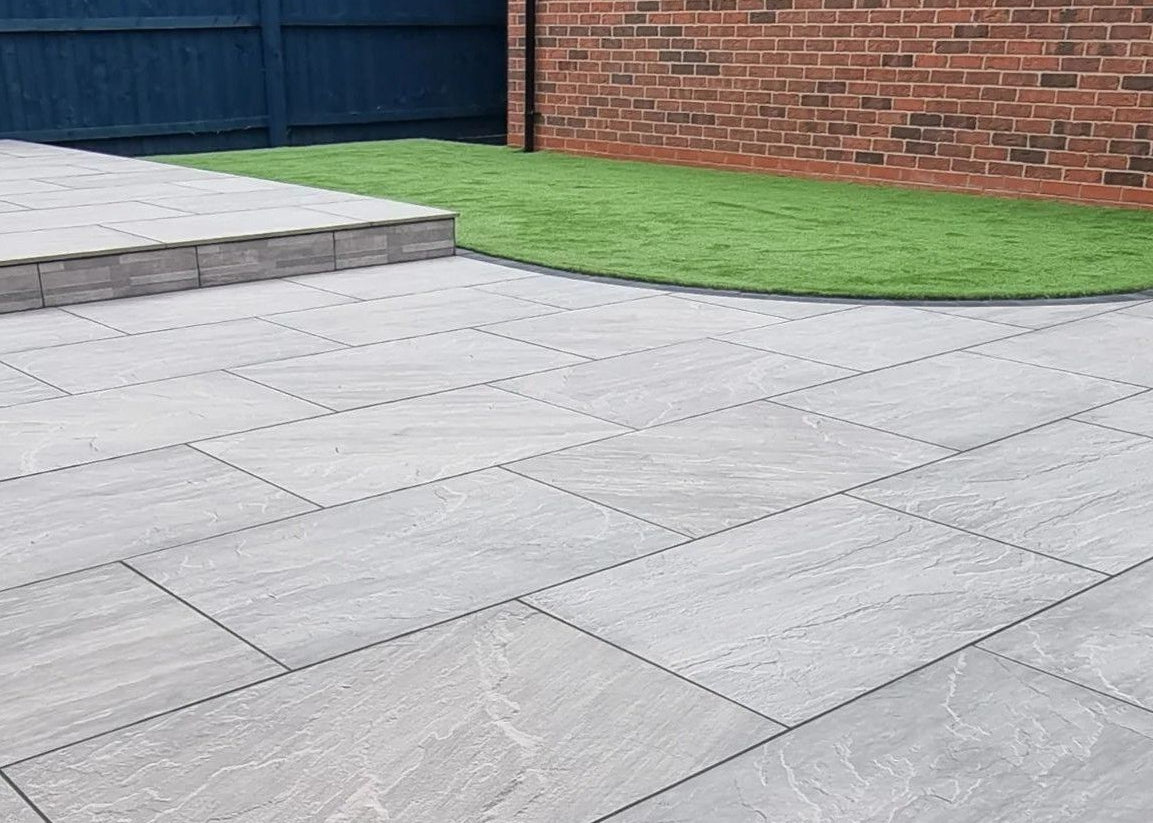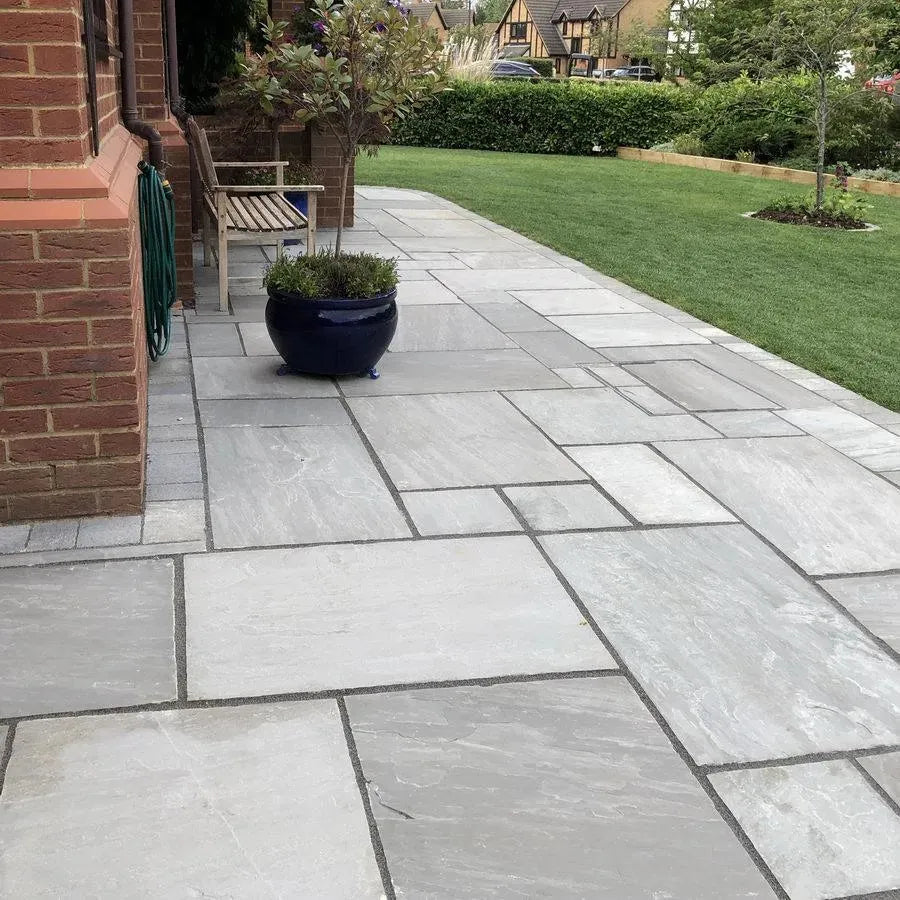
Porcelain Paving vs Sandstone Paving: Pros and Cons
- 05 Jan, 2024
Revamping your outdoor space with new paving slabs involves a pivotal decision: porcelain paving slabs or sandstone paving slabs? Each material possesses unique characteristics, making the choice a nuanced consideration. Let's delve deeper into the pros and cons of both porcelain and sandstone paving to empower you with comprehensive insights for your garden makeover.
Pros of Porcelain Paving Slabs:
- Durability: Porcelain paving slabs emerges as a standout choice due to its remarkable sturdiness, capable of enduring heavy impacts and high-traffic areas with unwavering resilience.
- Low Maintenance: Renowned for its natural stain resistance, porcelain paving slabs demands minimal upkeep, ensuring that it retains its pristine appearance over time and exhibits remarkable longevity.
- Moisture Resistance: The low porosity of porcelain paving slabs make them highly resistant to moisture penetration, thereby offering anti-slip properties when wet - a crucial feature for regions prone to frequent rainfall.
- Fire Resistance: Inherently non-flammable, porcelain paving slabs contribute to heightened fire safety, rendering it an ideal option for outdoor activities such as barbecues and gatherings.
Cons of Porcelain Paving Slabs:
- Installation Difficulty: The dense and hard nature of porcelain can present challenges during the cutting and installation processes, particularly for individuals lacking expertise or professional assistance.
- Weight: Being a dense and heavy material, it is imperative to assess whether your outdoor space can adequately support the additional load imposed by porcelain paving slabs.

Pros of Sandstone Paving Slabs:
- Durability: While not as robust as porcelain, sandstone paving slabs still boast impressive durability, capable of lasting for decades when subjected to proper care and maintenance.
- Eco-Friendly: The environmental consciousness of sandstone paving lies in its recyclability and biodegradability. The manufacturing process is notably less harmful to the environment, eschewing the use of harmful chemicals.
- Unique Finish: Each piece of sandstone paving is a distinctive natural stone, providing a visually appealing and unique appearance. The varied design possibilities it offers can impart a personalized touch to your outdoor space.
- Easy Maintenance: Sandstone paving requires minimal maintenance, and high-pressure washing can be employed for cleaning without compromising its color or finish.
Cons of Sandstone Paving:
- Water Absorption: The porous nature of sandstone paving makes it susceptible to water absorption, potentially leading to damage and permanent stains from liquids, mold, and bacteria.
- Scratches: Relatively softer compared to certain rocks, sandstone paving may be more prone to dents and scratches over time. However, diligent care can effectively mitigate this concern.
In conclusion
The decision between porcelain and sandstone paving hinges on your specific needs and aesthetic preferences. This comprehensive comparison aims to equip you with the knowledge needed to make an informed decision for your outdoor space. For further information and expert advice, we invite you to explore our online store, Stone Paving Slabs UK, where a diverse range of outdoor paving options awaits. Our services include nationwide delivery, with additional wholesale options catering to traders across the UK. Choose with confidence, ensuring your outdoor space reflects your unique style and meets your practical requirements.
Sources and References From Sister Company: Paving Slabs UK
Porcelain Paving vs Sandstone Paving: Pros and Cons September 5, 2023
https://www.pavingslabsuk.co.uk/blogs/porcelain-paving-slabs/porcelain-vs-sandstone
